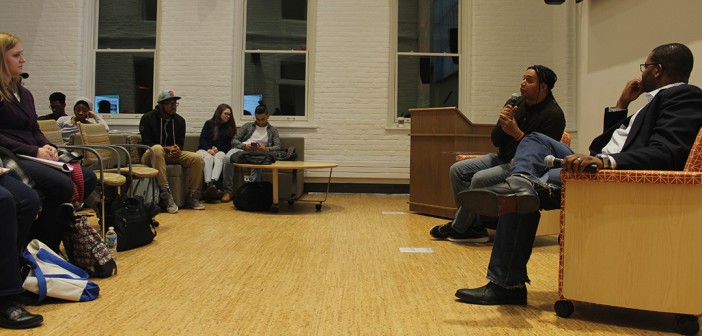While Lehigh works to provide cultural programming throughout the academic year, many organizations on campus get involved and work to promote events surrounding black history and culture during Black History Month.
“It’s not necessarily just the reminder of what African-Americans have done,” said Scott Grant, ’16, the president of the Multicultural Greek Council. “But also the relation they have had with their home countries because Black History Month is not just an American thing, it’s something that’s international.”
However, these discussions and events are not limited to the month of February. Many Lehigh organizations are constantly working toward improving the campus’s understanding and knowledge of black history. At the beginning of the academic year, the Office of Multicultural Affairs announced its theme for the year – 365U. The theme’s goal was to challenge people to think about identities outside of just a month.
“I think a lot of times you think Black History Month and it’s like, ‘February, that’s the only time we can celebrate black history,’ and not realize that black history is inherently American history,” said Rawle Sterling, graduate assistant for the Office of Multicultural Affairs.
Tyrone Russell, the director of the Office of Multicultural Affairs, said Black History Month, in particular, is something Americans celebrate as a nation, and Lehigh’s campus shouldn’t operate in a bubble. Learning about black history is important not just on Lehigh’s campus, but all over the country.
Sterling said it is also important to look specifically at Lehigh and the demographics in order to engage and inform the local community, particularly because minority groups are often overlooked.
“I think in an institution that is predominantly Caucasian, a lot of the cultural nuances of the black marginalized communities are lost,” Sterling said.
He noted that many clubs, organizations and offices put on programs that allow students to learn about the history, but it can sometime be lost on the entire campus body.
The festivities this month included events like black history jeopardy, where a group of students and faculty gathered in the Multicultural Room and answered trivia questions about quotes and movie celebrities.
Russell said the Office of Multicultural Affairs is working closely with the Africana studies department and getting involved with some of its programming. As faculty members, they are relying heavily on their students to control the narrative around campus as they believe that students’ voices have more of an impact.
According to Grant, the Martin Luther King Jr. committee and groups within the Multicultural Greek Council work to provide programming year-round. The Multicultural Greek Council typically holds its yard show during Black History Month, which emphasizes not just black history, but multicultural history, Grant said.
Sterling said there are always ways to get involved, and it’s as simple as starting conversations with friends.
“There is so much culture around you, even your closest friends, they provide a wealth of resources and knowledge,” he said. “They say, ‘Don’t be afraid to ask a stupid question,’ and I think it is on both sides. To educate, you have to allow people to ask questions that may initially be seen as ignorant or offensive, but if someone is asking it is because they want to know.”
It is important to allow for this sort of cross-cultural communication to take place, Sterling said.
Along with getting involved and engaging in conversations with friends, people can find ways to personally connect with the celebration of black history as well.
“I think it’s important to really identify with the history because just because it was black history doesn’t mean that there weren’t people of different backgrounds who were there with them,” Grant said. “I think sometimes people are hesitant to celebrate (Black History Month), but when you really think about it, it’s not an exclusive history – it’s something for everyone to take part in. And when you take part in it, you recognize that ‘this is something that I should be celebrating as well.’”
Recognizing and celebrating black history can take many different forms for many different people. Whether it be attending a discussion, participating in a play or talking to friends, Russell said there are many ways to get involved.
“My one message to the Lehigh community is, you pay a lot of money to go here,” Russell said. “So, if you are not getting a full education and a full understanding of all the people that exist on this campus and the world that you are going to get into, then why are you paying your money to be at this institution?”






Comment policy
Comments posted to The Brown and White website are reviewed by a moderator before being approved. Incendiary speech or harassing language, including comments targeted at individuals, may be deemed unacceptable and not published. Spam and other soliciting will also be declined.
The Brown and White also reserves the right to not publish entirely anonymous comments.